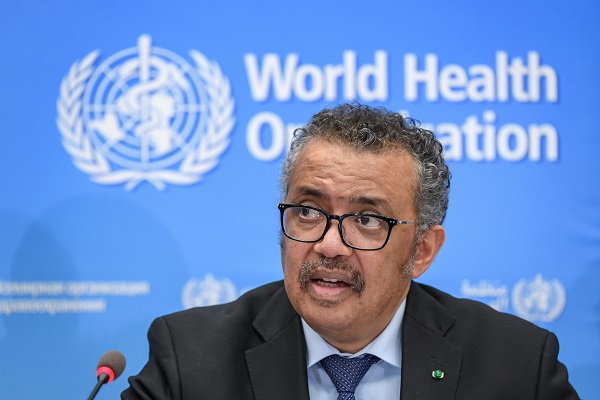
The director-general of the World Health Organisation (WHO), Dr. Tedros Ghebreyesus has revealed that over 85,000 cases of M-pox have now been reported to WHO, with 92 deaths since 2022.
Ghebreyesus made this known in his opening remarks during the fourth meeting of the IHR Emergency Committee which focused on a multi-country outbreak of M-pox today (February 9, 2023) in Geneva, Switzerland, saying 90 per cent of cases were reported from the Americas.
“But WHO continues to receive case reports from around the world, with more than 30 countries reporting in the last month.
“It is important to note that it is difficult to chart the true trajectory of the epidemic in the African region, due to the limited data available to WHO. Data sharing remains critical for all countries,” he said.
Ghebreyesus, however, noted that cases of M-pox have declined in affected countries since it was declared a public health emergency of international concern last July.
According to him, the number of reported cases of M-pox has continued to drop in all regions and this looks like a sustained decline.
“That said, the slowdown in reported cases indicates the effectiveness of response measures globally.
“Whether or not you advise me that the outbreak continues to constitute a public health emergency of international concern, bringing the outbreak to an end still requires intense effort. If we do not stop human-to-human transmission, we could face a resurgence of cases.
“Of course, we must remember that M-pox has been endemic in many low-income countries in Africa for many years.
“Even as it recedes in countries that have not seen major outbreaks before, this global outbreak must spur more sustained investment in addressing this disease everywhere,” he stressed.
The WHO boss added that going forward, there would be sustained efforts for surveillance, prevention and care; vaccination of high-risk populations, improving equitable access to diagnostics, vaccines and treatment for all who need them and continuing to fight stigma and discrimination, as well as ensure respect for human rights.
“Over the longer term, Mpox programmes and services should be integrated into surveillance and control programmes for HIV and other sexually transmitted infections (STIs),” he added.


